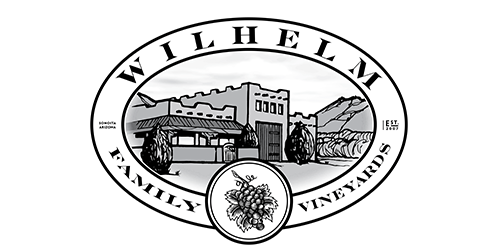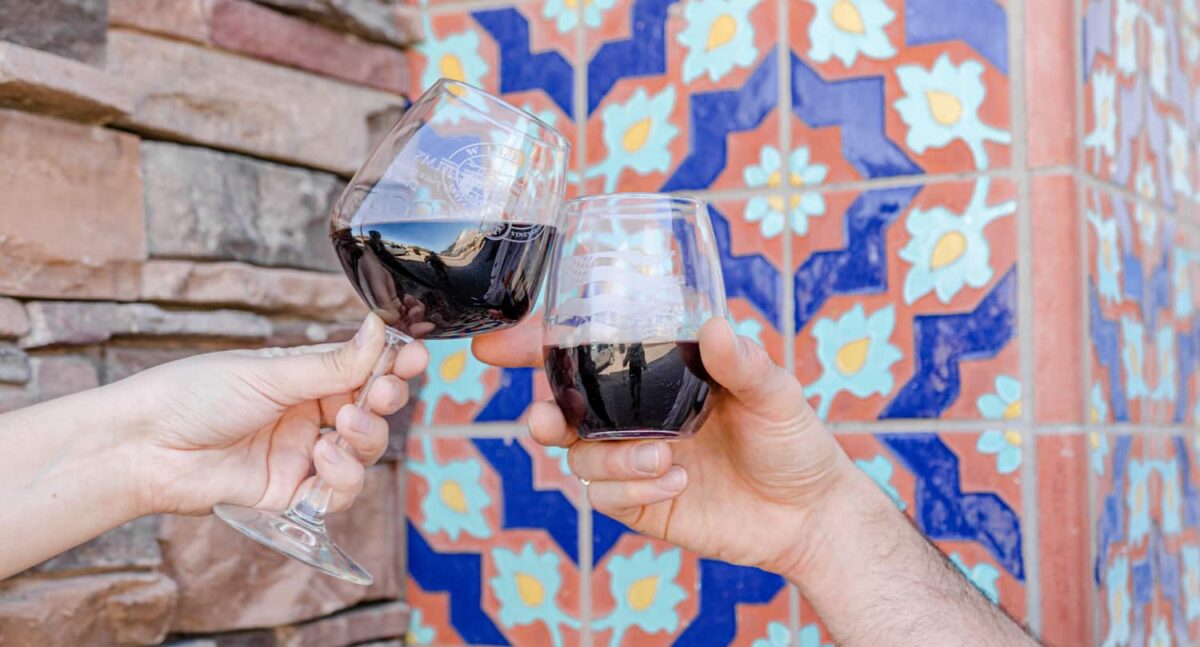When you’re first getting involved in the world of wine, it can be overwhelming to try to understand the different words used to describe wine and the process of making it. At our tasting rooms, we have a laid-back environment and we believe that the most important characteristic of wine is simply whether or not you love it. That being said, it can be helpful to have a better understanding of wine terminology so you can more easily describe which wines you like most. It also gives you an opportunity to learn more about the winemaking process, which many wine lovers appreciate.
Wine Tasting Terminology
These terms are related to the characteristics of wine. They may be beneficial during a tasting to describe a wine.
- Acidity: This is one of the fundamental traits of wine. Acidic wines have a tart, sour taste and this is typically associated with a “puckering” sensation.
- Body: The body of a wine is how light or heavy it feels in your mouth. To check a wine’s body before tasting it, you can swirl it around. The droplets that form on the side of the glass are called “legs” or “tears” and the more pronounced these are, the more body the wine has.
- Dry: A wine that is not sweet is described as dry.
- Finish: After taking a sip of wine, there are some flavors that linger and even evolve. This is known as the finish or aftertaste.
- Mouthfeel: This is the physical sensation of wine (or any other food/drink) within your mouth, and is an important counterpart to the flavor.
- Nose: The aromas of wine influence its flavors and this is known as the wine’s nose. For aged wines, you may hear the term “bouquet” instead.
- Off-Dry: If a wine has just a hint of sweetness, it is known as off-dry.
- Sweet: Sweet wines have more residual sugar and this characteristic is often the easiest to identify when tasting.
- Tannins: These are bitter-tasting compounds that are present in tea, cacao, and, of course, wine. A wine that is high in tannins would be described as tannic.
- Varietal: A varietal is a type of grape, and wines of a specific varietal often share certain characteristics. When a wine conforms with the expectations for its varietal, it is considered typical.
Other Wine Terms to Know
The wine terminology in this section is related to growing grapes, making wine, and serving it. The terms here are less likely to come up during a tasting but are still helpful to know, especially if you are interested in the winemaking process.
- ABV: Alcohol by volume (ABV) is how much alcohol is in a wine after fermentation, and is usually inversely related to residual sugar. However, this is not the case for fortified wines.
- Aging: After fermentation, wine can be exposed to various conditions in order to develop more complex flavors. This process is known as aging. Wines can be aged in barrels, in which case the type of wood influences the taste. Aging in the bottle is also a part of this process. There are various terms that indicate how much a wine has been aged. For our Spanish wines, two that you should be aware of are Reserva (three years of aging, at least one in a barrel) and Gran Reserva (five years of aging, at least two in oak).
- Blend: A wine blend includes different varietals and the goal is to strategically combine these to bring out new and interesting flavors.
- Brix: The sugar level of juice from wine grapes is measured in Brix. This allows the winemaker to estimate the final ABV.
- Decant: Decanting is the act of exposing wine to oxygen before drinking it.
- Fermentation: This is the process of yeast converting the natural sugars in grape juice into alcohol, creating wine.
- Fining: Wine naturally contains particles that are removed during the fining process to create a clearer final product. Fining agents are sometimes used and this is the part of the process that differentiates vegan wines from those that are not.
- Fortification: Fortified wines have alcohol added in after fermentation in order to increase the ABV while still preserving sweetness. Our port dessert wines are an example of this.
- Terroir: This is the French term for “earth” and describes the soil in which vines are grown. The composition of the terroir influences how the final product tastes.
Try Our Wines
Perhaps the best way (and definitely the most fun) to understand these terms is to experience them for yourself by actually tasting wine. We have two different tasting rooms, one in Tucson and one in Sonoita, where you can enjoy our delicious wines. You can also order online.

